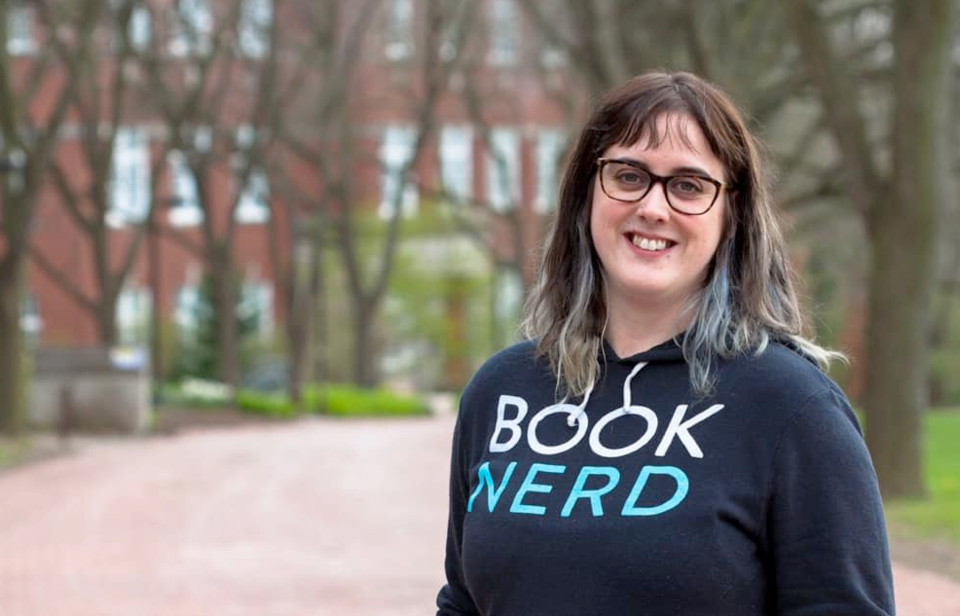As a longtime advocate for preserving the city's history, and a voice against rampant development, Michelle Goodridge is eager to hear Ward 1 residents' top concerns as she begins her campaign in the fall byelection to fill the council seat left empty by the death of Donna Reid.
Goodridge’s second push for the Ward 1 seat comes a year after her nomination for the 2022 election was rejected for not having enough signatures.
Although she contested the clerk’s decision initially, Goodridge ultimately didn’t challenge it.
And despite the setback, she remains motivated to become a “good representative for the ward” and a “voice for the people,” many of whom she knows felt unrepresented by a councillor who didn’t listen to their concerns.
Having said that, and acknowledging she and the late councillor had differing opinions over certain issues, Goodridge says she has the “utmost respect” for Reid.
“She was an integral part of the community, she put in a lot of time, and she really did care,” she says. “But we didn’t always feel that we got the level of engagement that we wanted from a councillor.”
As a 14-year ward resident, Goodridge was among groups at the forefront of some of the most contentious developments the city has ever seen, starting a few years ago with the demolition of the Preston Springs Hotel and including Blair Engaged’s year-long fight to keep the Amazon warehouse from being built on Old Mill Road.
Since then, Amazon has landed, condo towers are slated to rise at the historic intersection of King and Fountain streets, and even more development is on the horizon as the city strives to meet provincial housing targets that will see the population surge over the next decade.
“A lot has changed, but a lot of the major issues remain the same,” Goodridge says.
“I think we are still in the middle of a huge affordability crisis. I think we’re also seeing a lot of development applications that are not necessarily sustainable for Cambridge and we’re unfortunately relying on some of these large developments to solve the affordability crisis when in fact, if you build condos, they go for market rent and that’s not affordable for the vast majority of folks looking for housing.”
To help solve that issue, Goodridge wants to see changes to the way the region defines affordability and a wider scope applied to the city’s incentives to attract affordable housing developments.
She feels it will help create more of the missing middle density housing that appeals more to families.
Another key issue has to do with transportation and amenities like green space.
“With all of this development happening across the city, we’re kind of going at a fever pitch but not necessarily seeing the infrastructure we need to support it,” she said.
Traffic congestion is huge, she said, offering the example of getting around Cherry Blossom and Maple Grove roads where transit is sorely lacking.
It's likely adding to the problem of getting around the enitre city because the people who work in nearby industrial parks can’t rely on public transit to get where they need to go, she says.
“With some of these development applications, we’re counting on people taking transit but our transit needs in the city are not being fulfilled,” she said.
On the other hand, the city’s roads can’t support our continued reliance on vehicles.
Goodridge said Bill 23 and the Greenbelt scandal put a spotlight on how important green spaces are to communities and she wants the city to put more effort into protecting those spaces while providing room to grow.
Last but not least, she’d like to see more community support for marginalized communities and those who are struggling with addiction.
After looking up the hours available for people to access support at organizations like Porchlight and House of Friendship, Goodridge said it’s apparent they are chronically underfunded.
“It would be nice to see some more investment in community services and support to help folks. It’s a big puzzle. There are multiple pieces and we’ve made some steps in the right direction but we can always do more.”
Goodridge applauds the initiatives Donna Reid championed to help vulnerable communities and would like to continue that legacy.
Then there are ongoing development issues in Ward 1 that still present “big challenges.” They include the Forbes Estate, Blackbridge, Preston Springs, 255 King St. W., and Amazon's pending impact on Fountain Street South.
“I’m not against development. We obviously need development. We need to grow. We need people in our community, but I think we can do it in a more sustainable way.”
Hearing rhetoric from the province like “cut the red tape” and “get the developments in as fast as possible” raises red flags for Goodridge.
“We have planning procedures and we require consultation, we require documents and reports to be constructed and some of the issues may lie with a lot of these developments coming through with zoning bylaw amendments and that is a challenge,” she says.
“By allowing those, you’re giving clear indication to other developers that they can ask for those types of things and is that really sustainable?”
She’d rather see existing policies and procedures reinforced to reflect what the community wants.
For more information on Goodridge, visit her website.
The City of Cambridge Ward 1 byelection will be available to eligible voters through internet voting beginning Oct. 30, until Nov. 13, and at two advance polls on Nov. 1, and Nov. 4, and four locations on election day, Nov. 13.
The city says Ward 1 residents should expect to receive their Voter Notification Letter in mid-to-late October.
The four candidates running for the office of Councillor in Ward 1 include Karl Kiefer, Helen Shwery, Michelle Goodridge and Richard Kaufman.
For a full listing of advance in-person voting dates and locations, visit the 2023 byelection web page.



